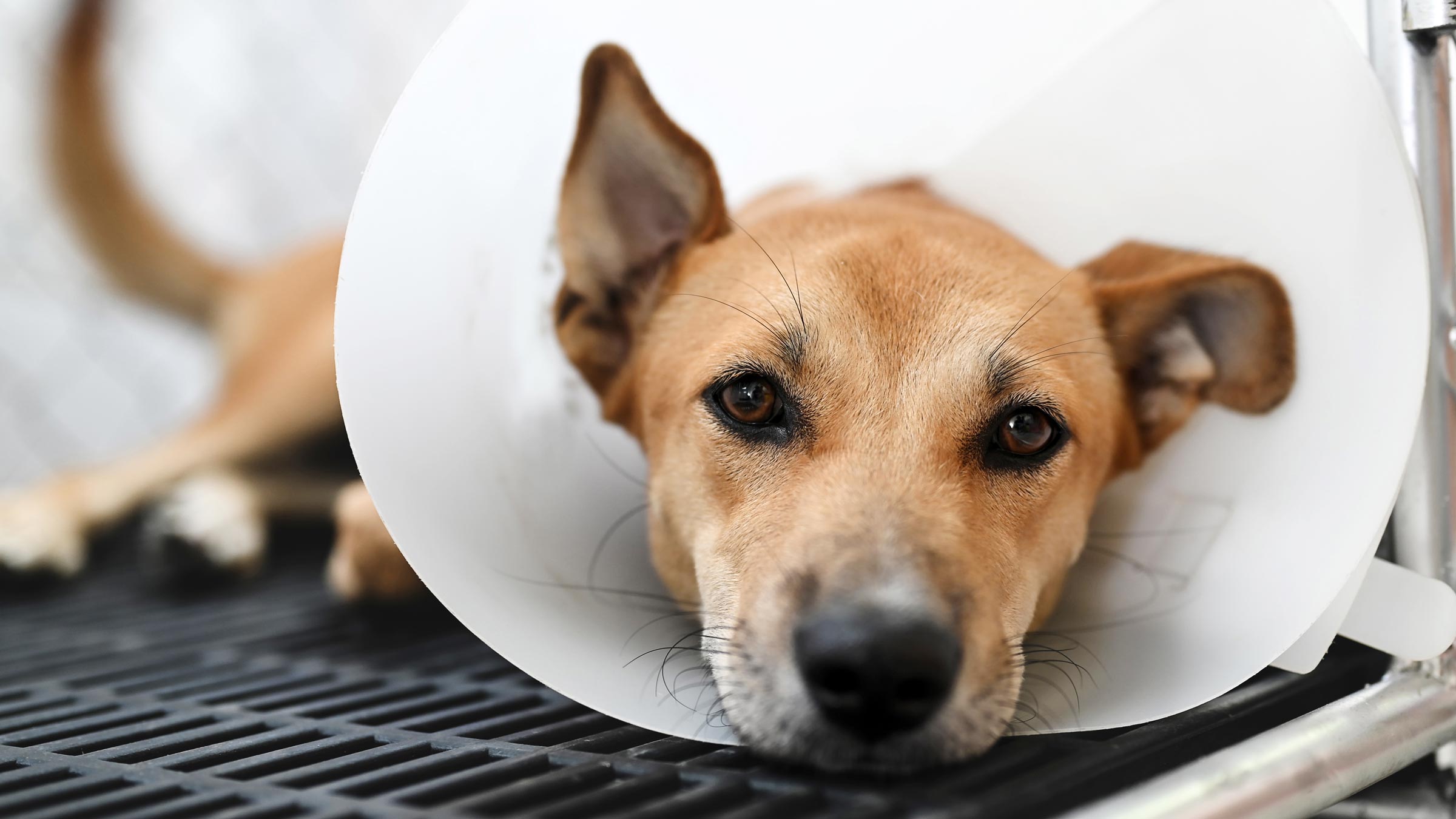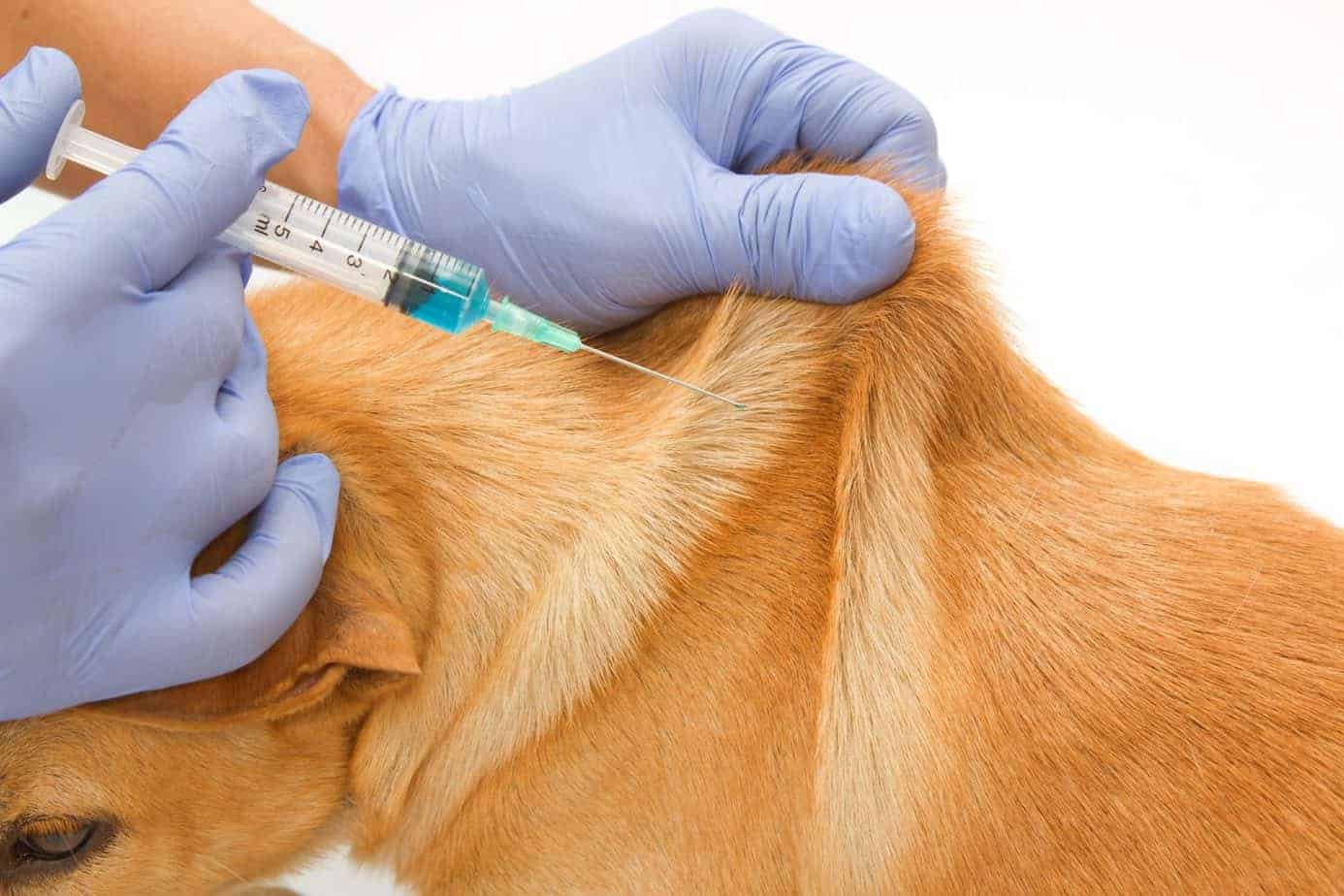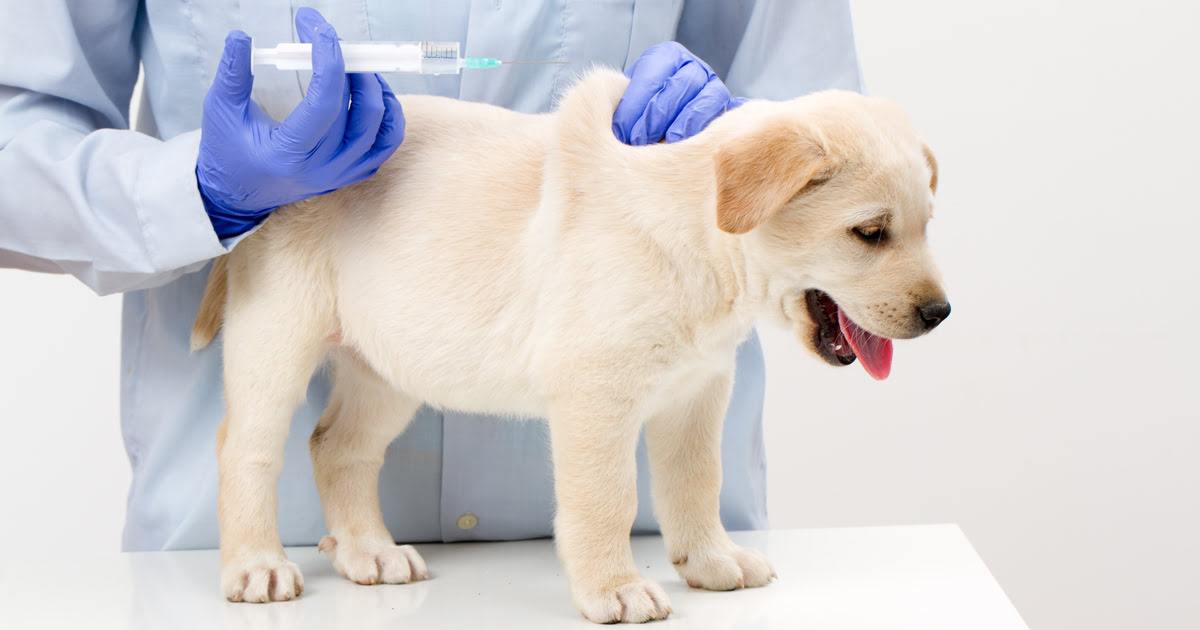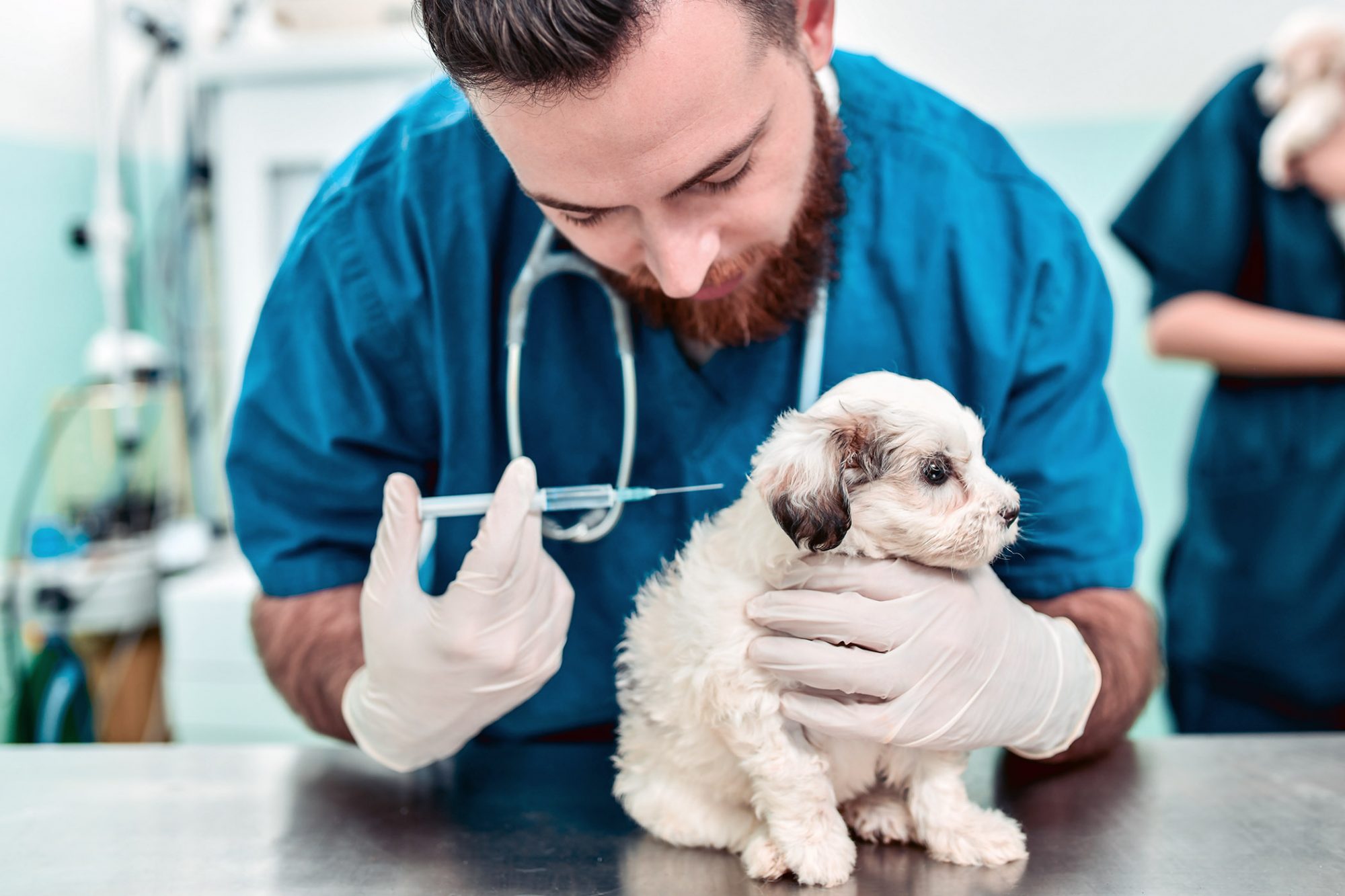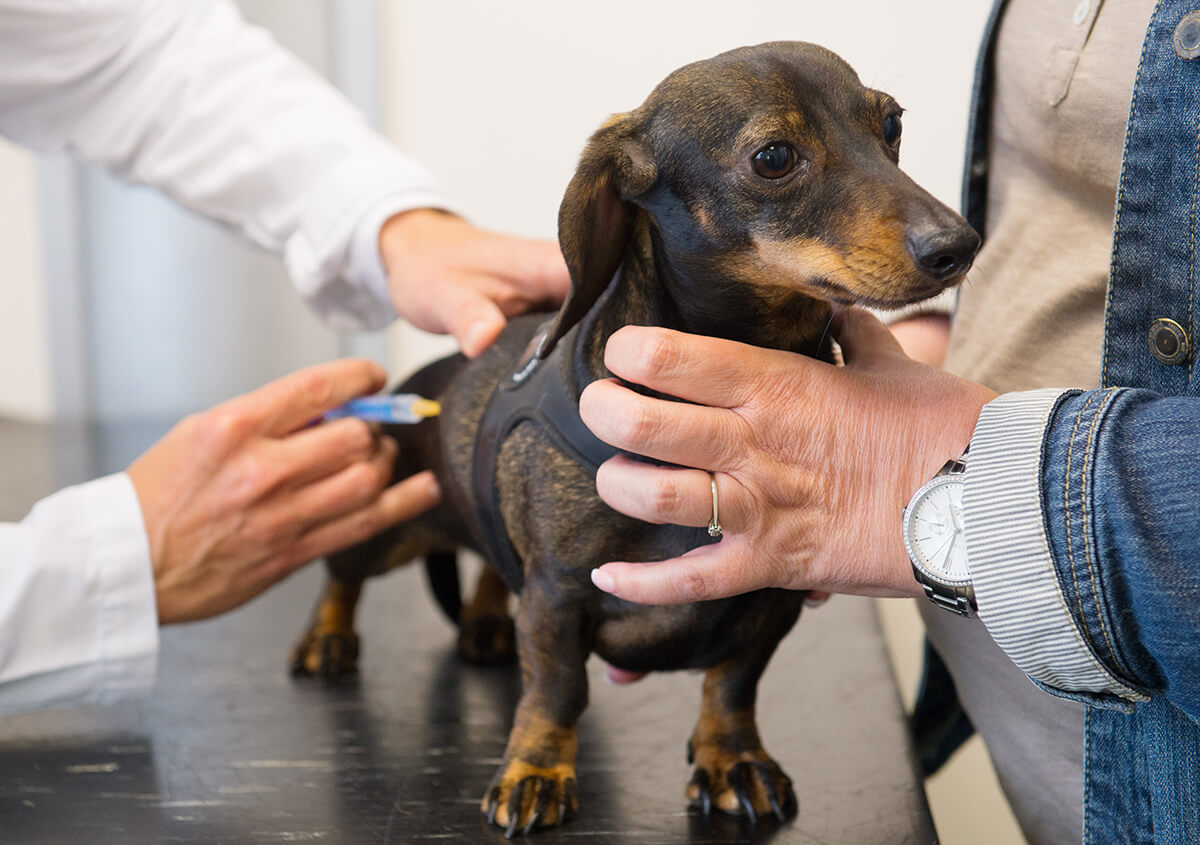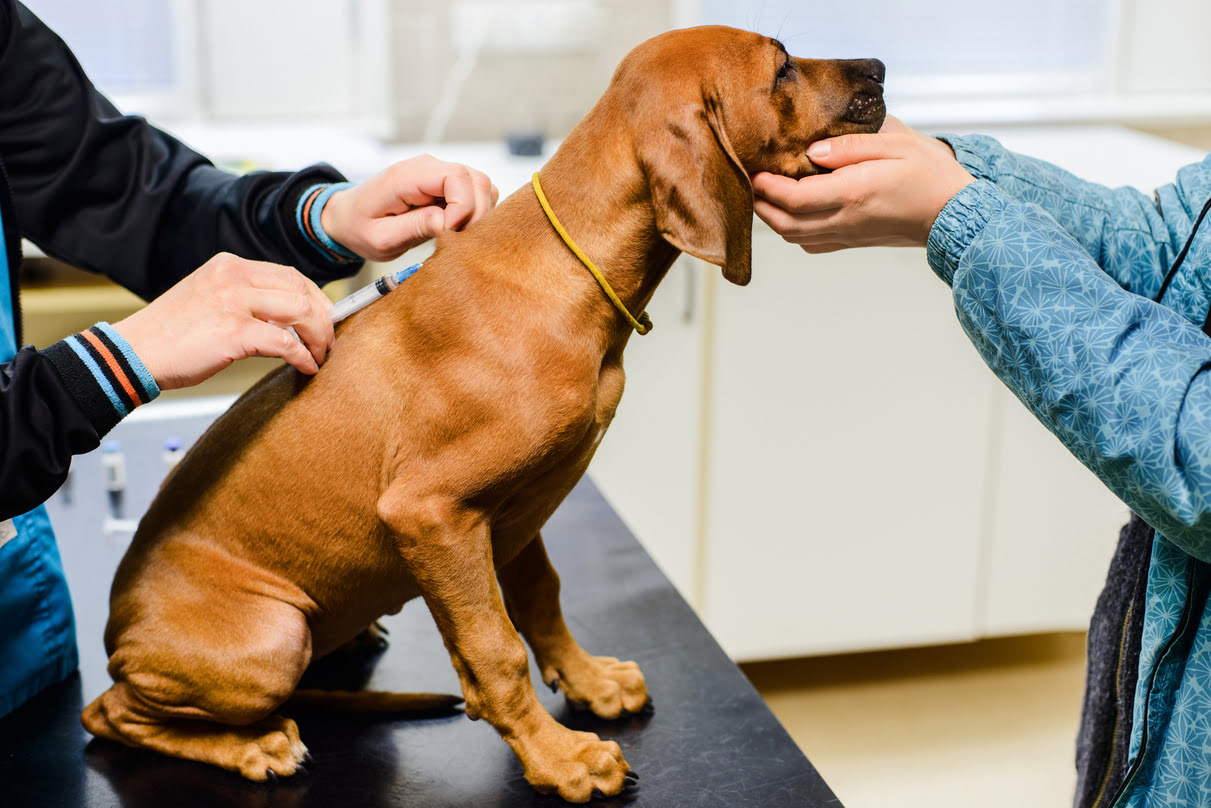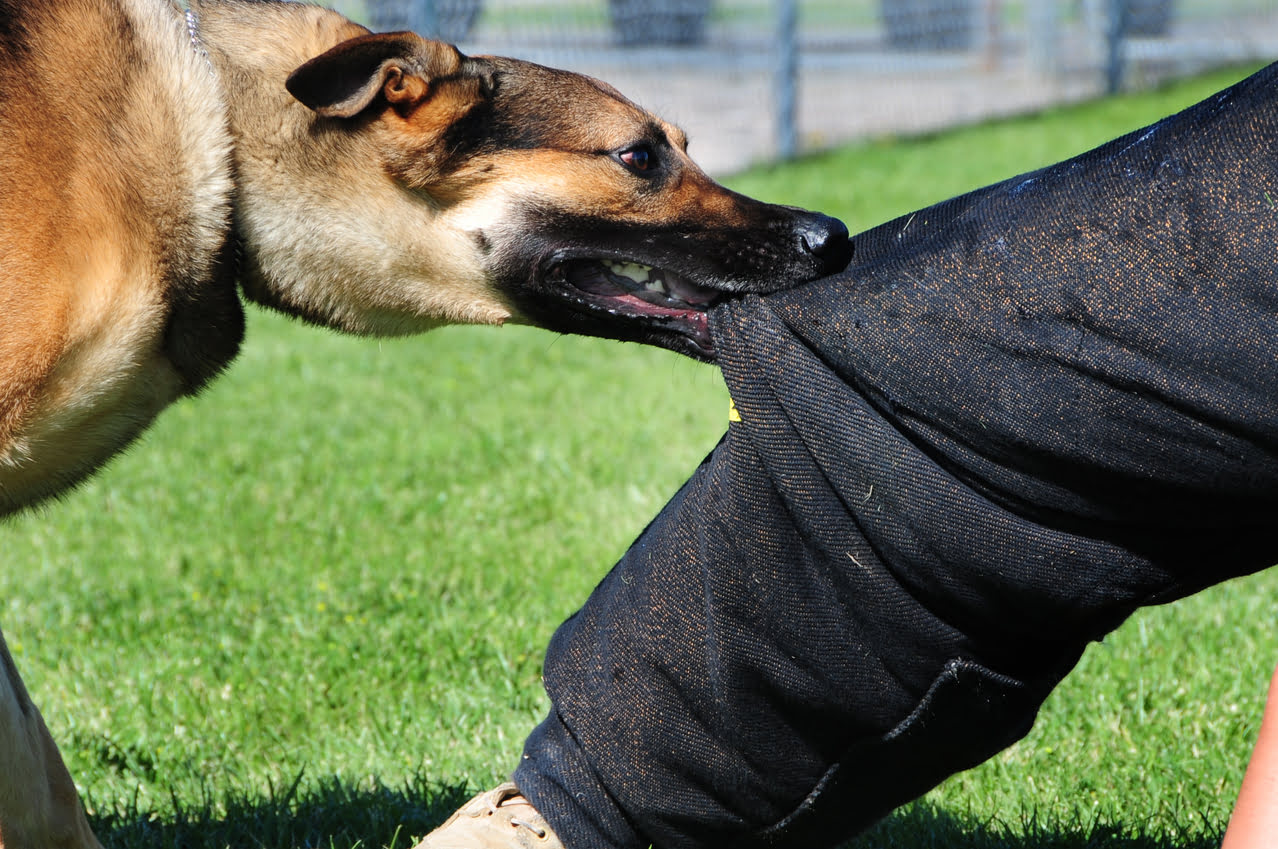Home>Health & Wellness>Common Health Issues>Where To Go For Dog Vaccination
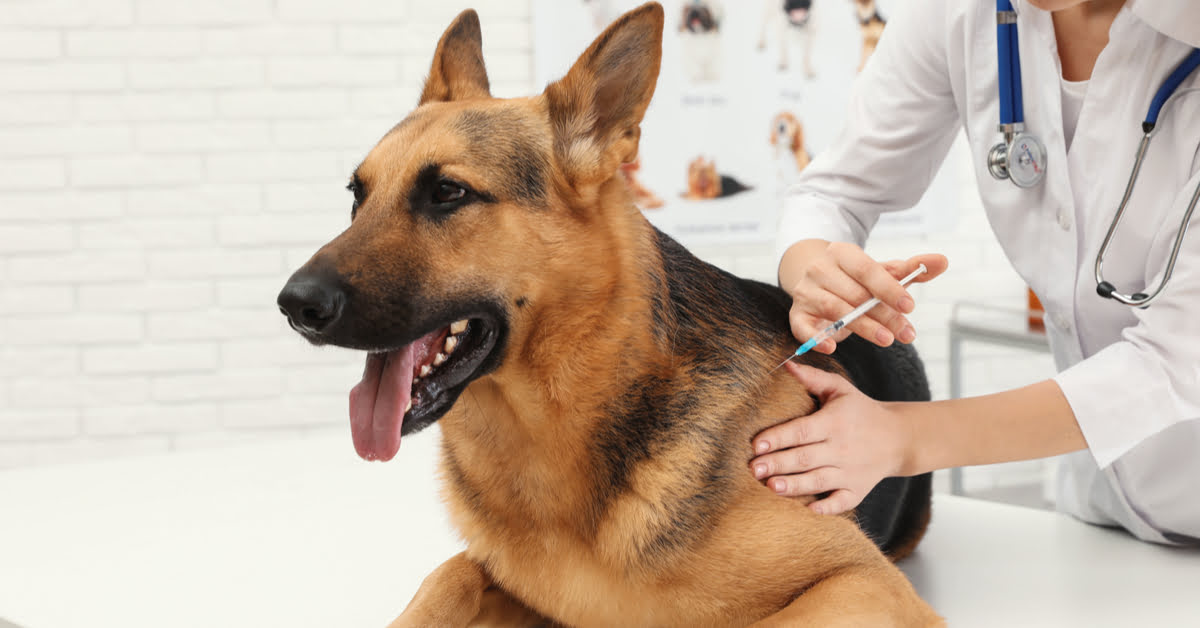

Common Health Issues
Where To Go For Dog Vaccination
Modified: March 1, 2024
Find out where to go for dog vaccination and learn about common health issues that can affect your pet. Protect your furry friend's well-being with the right care.
(Many of the links in this article redirect to a specific reviewed product. Your purchase of these products through affiliate links helps to generate commission for Pawsomeoldies.com, at no extra cost. Learn more)
Table of Contents
Importance of Dog Vaccination
Vaccinating your dog is a crucial aspect of responsible pet ownership. It plays a pivotal role in safeguarding the health and well-being of your furry companion. By administering vaccines, you are not only protecting your dog from potentially life-threatening diseases but also contributing to the overall public health by preventing the spread of contagious illnesses.
Vaccinations are designed to stimulate the immune system to produce antibodies against specific diseases. These antibodies act as a defense mechanism, effectively combating and neutralizing pathogens that may invade your dog's body. By doing so, vaccinations help to fortify your dog's immune system, making them less susceptible to infections.
Furthermore, dog vaccinations are instrumental in preventing the outbreak of infectious diseases within the canine population. Diseases such as rabies, parvovirus, distemper, and canine hepatitis can spread rapidly among unvaccinated dogs, posing a significant risk to the entire community of pets. Through vaccination, the incidence of these diseases can be significantly reduced, thereby creating a safer environment for all dogs.
It's important to note that vaccinations not only protect individual dogs but also contribute to the concept of herd immunity. This means that when a large percentage of the dog population is vaccinated, the spread of infectious diseases is curtailed, providing indirect protection to unvaccinated dogs, including those who cannot be vaccinated due to health reasons.
In essence, dog vaccination is a cornerstone of preventive healthcare for your pet. It serves as a proactive measure to shield your dog from potentially devastating diseases and helps to create a safer and healthier community for all dogs. Therefore, staying up to date with your dog's vaccination schedule is a fundamental aspect of responsible pet ownership.
Common Vaccines for Dogs
Vaccines are essential for protecting dogs from a range of infectious diseases. Understanding the common vaccines for dogs is crucial for ensuring their well-being. Here are some of the key vaccines recommended for dogs:
1. Rabies Vaccine
Rabies is a fatal viral disease that can affect all warm-blooded animals, including humans. In many regions, it is mandatory to vaccinate dogs against rabies due to its zoonotic nature. The rabies vaccine is typically administered as a core vaccine and is vital for both the health of the dog and public safety.
2. Distemper Vaccine
Canine distemper is a highly contagious and serious viral illness that affects the respiratory, gastrointestinal, and nervous systems of dogs. The distemper vaccine is a core vaccination that provides crucial protection against this debilitating disease.
3. Parvovirus Vaccine
Parvovirus is a highly contagious and potentially fatal viral disease that primarily affects the gastrointestinal tract of dogs. The parvovirus vaccine is considered a core vaccination and is essential for preventing this severe and often life-threatening illness.
Read more: Where Do I Get My Dog’s Licensing, Vaccine, And Rabies Replacement Vaccinations Dog Tags In Utah?
4. Adenovirus Vaccine
Infectious canine hepatitis, caused by canine adenovirus type 1, is a contagious disease that affects the liver, kidneys, and endothelial cells. The adenovirus vaccine, often combined with the distemper and parvovirus vaccines, is a core vaccination that provides vital protection against this viral infection.
5. Bordetella Vaccine
Bordetella bronchiseptica is a bacterium commonly associated with kennel cough, a highly contagious respiratory disease in dogs. The bordetella vaccine, often administered nasally, provides essential protection against this infectious condition, particularly for dogs that are frequently in contact with other canines in settings such as boarding facilities or dog parks.
6. Leptospirosis Vaccine
Leptospirosis is a bacterial disease that can affect both animals and humans. The leptospirosis vaccine is recommended for dogs at risk of exposure to the bacteria, such as those in rural or outdoor environments. This vaccine helps protect against this potentially life-threatening zoonotic disease.
Understanding the importance of these common vaccines for dogs is crucial for pet owners. By ensuring that their dogs receive the appropriate vaccinations, they can significantly reduce the risk of their pets contracting these serious and potentially life-threatening diseases. Regular discussions with a veterinarian can help determine the most suitable vaccination protocol based on the dog's lifestyle, environment, and individual health considerations.
Where to Get Your Dog Vaccinated
When it comes to getting your dog vaccinated, there are several options available to ensure that your furry friend receives the necessary immunizations. Understanding where to go for dog vaccination is essential for providing comprehensive healthcare for your pet. Here are some primary avenues for getting your dog vaccinated:
Read more: When Can My Dog Go Out After Vaccinations
1. Veterinary Clinics
Veterinary clinics are the most common and reliable locations for dog vaccinations. These facilities are staffed with trained veterinarians and veterinary technicians who specialize in preventive care, including vaccinations. By visiting a veterinary clinic, you can benefit from professional expertise and personalized recommendations tailored to your dog's specific health needs. Additionally, veterinary clinics often maintain comprehensive records of your dog's vaccination history, facilitating the management of their overall healthcare.
2. Mobile Vaccination Clinics
In some areas, mobile vaccination clinics may be available to provide convenient access to essential vaccinations for dogs. These clinics are often set up in community centers, pet supply stores, or other accessible locations, offering a convenient option for pet owners who may have difficulty visiting a traditional veterinary clinic. Mobile vaccination clinics are particularly beneficial for individuals with busy schedules or limited transportation options, ensuring that their dogs receive necessary immunizations without added stress or inconvenience.
3. Animal Shelters and Rescue Organizations
Animal shelters and rescue organizations are committed to promoting the health and well-being of animals in their care. When adopting a dog from a shelter or rescue, inquire about the vaccination history and any upcoming immunization requirements. Many shelters provide initial vaccinations for dogs upon intake, and they may offer guidance on continuing the vaccination schedule with a local veterinarian. By partnering with these organizations, pet owners can access valuable resources and support for their dog's vaccination needs.
4. Pet Stores and Community Events
Some pet stores and community events collaborate with veterinary professionals to host vaccination clinics for dogs. These events are often publicized within the local community and may offer affordable vaccination options for pet owners. Attending these clinics can be an accessible and cost-effective way to ensure that your dog receives essential immunizations while engaging with fellow pet owners and accessing educational resources on responsible pet care.
Read more: Where Do Dogs Get Ticks?
5. Online Veterinary Services
In recent years, online veterinary services have emerged as a convenient option for pet owners seeking professional guidance on vaccinations and other healthcare needs. While online platforms cannot administer vaccinations, they can provide valuable information on recommended vaccines, vaccination schedules, and potential risks associated with specific diseases. Additionally, online veterinary services may offer telemedicine consultations, enabling pet owners to discuss vaccination concerns and receive expert advice from licensed veterinarians.
By exploring these diverse avenues for dog vaccination, pet owners can make informed decisions regarding their dog's healthcare. Whether visiting a traditional veterinary clinic, attending a mobile vaccination clinic, or seeking guidance from animal shelters and online resources, prioritizing your dog's vaccination needs is a proactive step toward ensuring their long-term health and well-being.
Factors to Consider When Choosing a Vaccination Clinic
When selecting a vaccination clinic for your dog, several crucial factors should be taken into account to ensure the best possible care for your furry companion. These considerations can significantly impact the overall experience and effectiveness of the vaccination process. Here are key factors to keep in mind when choosing a vaccination clinic for your dog:
-
Professional Expertise: Look for a vaccination clinic staffed with licensed veterinarians and certified veterinary technicians. The expertise of the healthcare professionals administering the vaccines is paramount in ensuring the safety and well-being of your dog. A reputable clinic will have knowledgeable and experienced staff capable of addressing any concerns and providing personalized recommendations based on your dog's specific health needs.
-
Vaccine Options and Recommendations: A reliable vaccination clinic should offer a comprehensive range of vaccines tailored to your dog's lifestyle, environment, and individual health considerations. The clinic's staff should be able to provide informed recommendations on core vaccines, lifestyle-specific vaccines, and any additional immunizations that may be necessary based on your dog's risk factors.
-
Clean and Safe Environment: The clinic should maintain a clean, organized, and hygienic environment to minimize the risk of disease transmission. A well-maintained facility demonstrates a commitment to upholding high standards of care and prioritizing the health and safety of all animals receiving vaccinations.
-
Record-Keeping and Documentation: Choose a clinic that maintains thorough and accurate records of your dog's vaccination history. Clear documentation of administered vaccines, dates, and any adverse reactions is essential for tracking your dog's immunization status and ensuring timely follow-up vaccinations.
-
Client Education and Communication: A reputable vaccination clinic will prioritize client education, providing information on the importance of vaccinations, potential side effects, and post-vaccination care. Effective communication between the clinic staff and pet owners fosters a collaborative approach to maintaining the health and well-being of their dogs.
-
Emergency Preparedness: In the event of a rare adverse reaction or emergency, the clinic should have protocols in place to handle such situations promptly and effectively. Access to emergency medical supplies and the ability to respond to unexpected complications is crucial for ensuring the safety of all vaccinated animals.
-
Cost and Affordability: While cost should not be the sole determining factor, it is important to consider the affordability of vaccination services. Look for a clinic that offers transparent pricing and value for the services provided, ensuring that your dog receives high-quality care without incurring unnecessary financial burden.
By carefully evaluating these factors when choosing a vaccination clinic for your dog, you can make an informed decision that prioritizes your pet's health and well-being. Selecting a reputable and reliable clinic sets the foundation for a positive and effective vaccination experience, contributing to the long-term health and happiness of your beloved canine companion.
Cost of Dog Vaccination
The cost of dog vaccination is a significant consideration for pet owners seeking to provide essential preventive healthcare for their furry companions. Vaccinations play a crucial role in safeguarding dogs from a range of infectious diseases, contributing to their overall well-being and longevity. Understanding the factors that influence the cost of dog vaccination can help pet owners make informed decisions regarding their pets' healthcare needs.
Several factors contribute to the overall cost of dog vaccination, including the type and number of vaccines administered, the veterinary clinic or service provider chosen, and any additional preventive healthcare services offered in conjunction with vaccinations. Core vaccines, such as those for rabies, distemper, parvovirus, and adenovirus, are essential for all dogs and are typically included in standard vaccination packages. However, lifestyle-specific vaccines, such as those for leptospirosis or bordetella, may incur additional costs based on the dog's risk factors and environmental exposure.
The cost of dog vaccination can vary based on the geographic location and the specific pricing structure of veterinary clinics or service providers. Urban areas and regions with higher living costs may generally have higher vaccination fees compared to rural or less densely populated areas. Additionally, the reputation and expertise of the veterinary professionals administering the vaccines, as well as the quality of the facilities and services provided, can influence the overall cost of vaccination.
In some cases, veterinary clinics may offer vaccination packages or wellness plans that encompass a series of vaccinations, preventive medications, and routine healthcare services at a bundled price. These comprehensive plans can provide cost-effective options for pet owners seeking to ensure their dogs receive essential vaccinations while managing their overall healthcare expenses.
Furthermore, the cost of dog vaccination may encompass additional services, such as wellness examinations, parasite control, and microchipping, which are often integrated into preventive healthcare protocols. While these supplementary services contribute to the overall cost, they play a vital role in promoting comprehensive wellness for dogs and may offer long-term cost savings by preventing potential health issues.
It is important for pet owners to prioritize the health and well-being of their dogs while considering the cost of vaccination. By seeking transparent pricing, understanding the value of the services provided, and exploring potential cost-saving options, pet owners can ensure that their dogs receive high-quality vaccinations without compromising on essential preventive healthcare.
Ultimately, the cost of dog vaccination reflects the commitment to providing optimal care for canine companions, contributing to their resilience against infectious diseases and fostering a lifetime of health and happiness. Pet owners are encouraged to engage in open discussions with veterinary professionals to gain clarity on vaccination costs and explore viable options that align with their dogs' healthcare needs and financial considerations.
Vaccination Schedule for Dogs
Establishing a comprehensive vaccination schedule is essential for ensuring the long-term health and well-being of dogs. The vaccination schedule outlines the recommended timing and frequency of administering essential vaccines to protect dogs from a range of infectious diseases. By adhering to a structured vaccination schedule, pet owners can proactively safeguard their canine companions and contribute to the overall public health of the canine population.
The vaccination schedule for dogs typically begins in puppyhood, as young dogs are particularly vulnerable to infectious diseases. Core vaccines, including those for rabies, distemper, parvovirus, and adenovirus, are typically initiated in a series of doses to establish robust immunity. The initial vaccination series is often administered in multiple rounds, with each vaccine strategically timed to coincide with the puppy's developing immune system. This initial series is crucial for providing foundational protection against life-threatening diseases.
Following the initial puppy vaccination series, booster doses are essential to reinforce and maintain immunity. Booster vaccinations are administered at specific intervals to ensure that the dog's immune response remains robust and effective. The frequency of booster vaccinations may vary based on the type of vaccine, the dog's lifestyle and environmental factors, and regional disease prevalence. Regular discussions with a veterinarian are instrumental in determining the most suitable booster vaccination schedule for individual dogs.
In addition to core vaccines, lifestyle-specific vaccines may be recommended based on the dog's risk factors and environmental exposure. For example, dogs that frequent boarding facilities, dog parks, or interact closely with other canines may benefit from vaccines targeting infectious conditions such as bordetella (kennel cough). Similarly, dogs with outdoor or rural exposure may require vaccination against leptospirosis to mitigate the risk of bacterial infection.
Understanding the vaccination schedule for dogs involves recognizing the importance of timely vaccinations and adherence to recommended intervals. By staying informed about the specific vaccination needs of their dogs, pet owners can actively participate in maintaining their pets' health and minimizing the risk of infectious diseases. Regular veterinary consultations provide opportunities to review and adjust the vaccination schedule based on the dog's evolving health status and lifestyle changes.
Ultimately, a well-structured vaccination schedule serves as a proactive strategy for protecting dogs from preventable diseases and promoting their overall well-being. By prioritizing timely vaccinations and booster doses, pet owners play a pivotal role in ensuring that their canine companions lead healthy, vibrant lives while contributing to the broader goal of fostering a resilient and thriving canine community.


